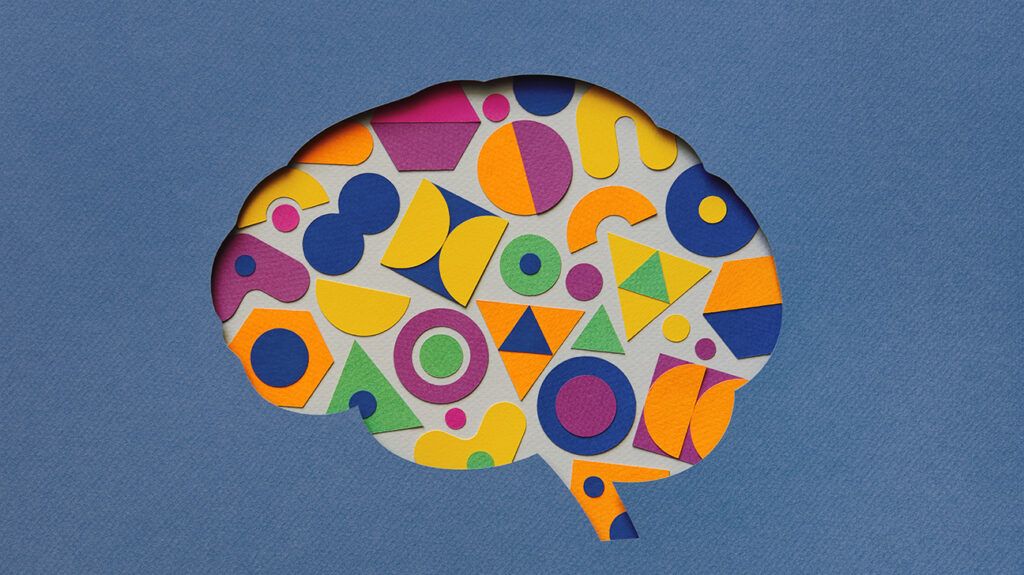You’re not alone if you’ve wondered if anxiety causes your brain to process differently. It’s not a simple answer. A therapist can help you understand.

When you live with anxiety, you may feel like the world wasn’t quite built for you.
You may notice that you differ from peers in how you interpret information or communicate.
Perhaps you feel like you can relate to those with neurodivergence. It can be helpful to learn about this term and what it means.
It depends on who you ask.
The prefix neuro- is Greek for nerves or the nervous system. We use it in reference to brain biology. Neurotypical would be what science considers mainstream brain function.
Neurodivergence is fast becoming an umbrella term used to describe how a brain functions outside of the ‘neurotypical’ mold, says Dr. Carly Claney, a licensed clinical psychologist in Seattle, Washington.
To date, there’s
With that said, neurodivergence is still a
Sociologist Judy Singer first explored neurodiversity in 1998 in reference to autistic folks. But the definition has since expanded to include other conditions in advocacy movements and social justice circles.
“With this definition, anxiety can be considered a form of neurodivergence, although it may not be as commonly recognized as ADHD, autism, or trauma,” she says.
Many people utilize self-identification to categorize themselves as being neurodivergent, explains Claney. “This can be a way to validate that your experience in the world is different from those whose experience matches the normative experience that many systems were created around,” she says.
Yes, this is fairly common.
Anxiety is often comorbid with diagnoses like autism spectrum disorder and ADHD. But it’s also possible to have anxiety without any other condition, says Sharon Kaye-O’Connor, a licensed clinical social worker in New York City.
“Neurodivergence is often misidentified as anxiety, especially in girls, women, and nonbinary folks. Anxiety is often a diagnosis that happens on the way to identifying neurodivergence,” she explains.
Kaye-O’Connor adds that anxiety can be a particularly common element of the autistic experience.
“Living in a world that wasn’t designed for neurodivergent needs can contribute to the overall level of anxiety for neurodivergent folks,” she says.
“If we think differently or process our environments in a different way, we may find ourselves constantly attempting to ‘translate’ or communicate our thoughts, experiences, and needs to others.”
Research shows that autistic people experience comorbid anxiety
Generally speaking, to be neurodivergent means to have a type of brain that differs from the neuro-majority, says Kaye-O’Connor.
“I think of it as having a different operating system, so a neurodivergent person would have a way of experiencing and being in a world that is different from the ‘norm,’” she explains.
Processing disorders
These include:
Everyone’s brain functions differently, so your experience will be unique.
With that said, if you are a neurodivergent person, you may notice differences from other people in how you process and respond to information.
Processing differences could impact your:
- attention span
- behaviors
- communication
- learning
- mood
- movement
- sensory sensations
- social interactions
- time management
The best way to receive a formal diagnosis is to talk things through with a professional, particularly one familiar with testing for neurodivergence. You may find it helpful to use our search tools to find a therapist.
You don’t have to go through this experience alone. When left untreated, anxiety on its own or with another neurodivergent condition can hamper your quality of life.
Claney affirms that therapy may help you by increasing your:
- self-awareness
- insight
- recognition of:
- behaviors
- personality traits
- strengths
- challenges
- the path leading to where you are now
“Insight may lead to greater self-acceptance, healing, or processing through trauma or pain or frustration of living in a society that was not set up for you, and learn strategies for managing your [challenges],” she says.
Neurodivergence is a new concept. In the existing body of research, it’s not formally linked to anxiety yet. However, some advocates categorize anxiety as neurodivergent since it broadly defines brains functioning atypically.
You can work with a therapist to help validate your experience with anxiety and other co-occurring conditions.
